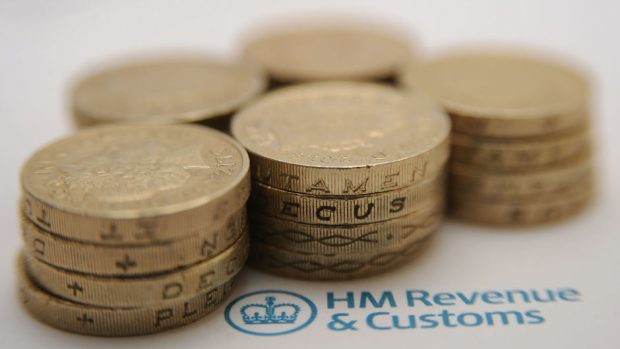If there were a national to-do list, a piece of paper itemising tasks that need attending to if Britain’s to be made a better place, what might that list contain?
Fixing our creaking health service is one obvious candidate. Another’s the need to get all sorts of infrastructure – not least crumbling roads and potholed streets – into better shape.
Educational provision, it’s reckoned widely, could do with additional investment. And there’s pretty general agreement that we desperately require more houses for sale and for rent – at prices and rent levels that people, especially young people, can afford.
Compiling such a list’s the easy bit. What, as a country, we find harder – more or less impossible in fact – is getting done the many jobs that urgently need doing. There are doubtless lots of reasons for this national failure. But by far the most important is the longstanding reluctance of British politicians – cheered on by very many of the rest of us – to raise taxes.
For the last 40 years in fact, our governments have done the opposite. Personal tax rates, for example, have been cut, cut and cut again – to the point where, for average earners, they’re a lot lower than in most other economically advanced nations. Relatively speaking, high earners haven’t done quite so well. But even they pay less tax, sometimes a great deal less tax, than the generality of their counterparts elsewhere in Europe.
And what’s true of individuals is equally true of companies. Corporate tax rates, just like tax rates for individuals, have long been on a downward – sometimes a sharply downward – trend.
Politicians of course are well aware that most of us are by no means averse to hanging on to as much as possible of our hard-earned cash. But Britain’s tax-cutting agenda has by no means been driven entirely by the political class’s understandable wish to curry favour with voters. Economic theorising of a particular type has also loomed large in the policy-making process.
According to the thinking in question, the best way to get an economy to expand, and to go on expanding, is to reduce the taxes levied on people and on businesses. The more money that’s left with earners and with commercial concerns, or so the theory goes, the more cash will be available for spending as its individual and corporate owners see fit. Bosses will have bigger sums to invest in whatever it takes to make their companies more efficient. The rest of us will be free to spend ever more lavishly on goods and services of all kinds. The wider economy, in consequence, will grow much faster than it would have done if held back by high tax rates.
There’s only one thing wrong with this approach. It very clearly doesn’t work. If it did, Britain would be a more prosperous, more economically successful, country than, for instance, Germany, France, Sweden and Denmark – where taxation is heavier, often much heavier, than here.
Manifestly, we’re neither more prosperous nor more successful than those higher-taxed nations. Nor is the British economy growing at anything like the rate it did back in the 1950s and 1960s – when our own tax rates were way, way in excess of what they are today.
Which is not to say that tax-cutting hasn’t produced results. It very definitely has done. The trouble is that most of them are bad.
What’s the single common cause of lengthening hospital waiting lists, inadequately equipped schools, lack of care for the elderly and vulnerable, proliferating food banks, growing poverty, fewer police, lack of road maintenance, closed-down libraries and all the numerous other symptoms of a society in trouble?
The common cause is lack of the hard cash required to put things right. And this scarcity of financial resource is, in turn, the inevitable consequence of endlessly prioritising tax cuts over public spending.
Reversing those priorities won’t be easy. Two or more generations have come to maturity in a Britain where tax is habitually described as ‘a burden’, ‘a take’, ‘an imposition’ – something to be minimised, avoided or dodged with the help of a financial industry ever ready with expert advice as to how best to do just that.
There is a radically different way to think about tax. Not as a confiscation but as the fee or the subscription everyone pays in order to gain the many benefits to be got from living in the sort of country where the public realm is properly provided for.
The sort of country that’s defended by well-equipped security forces. The sort of country where every kid gets the best possible education, where the sick are speedily cared for, the elderly well looked after and the homeless housed. The sort of country where public transport services are a source of pride instead of a cause of despair. The sort of country ours could be but isn’t.
The conventional wisdom is that to make this kind of case for tax is to be on a hiding to nothing. But one of the cheering things about conventional wisdom is that, in the long run, it’s often shown to be wrong.

